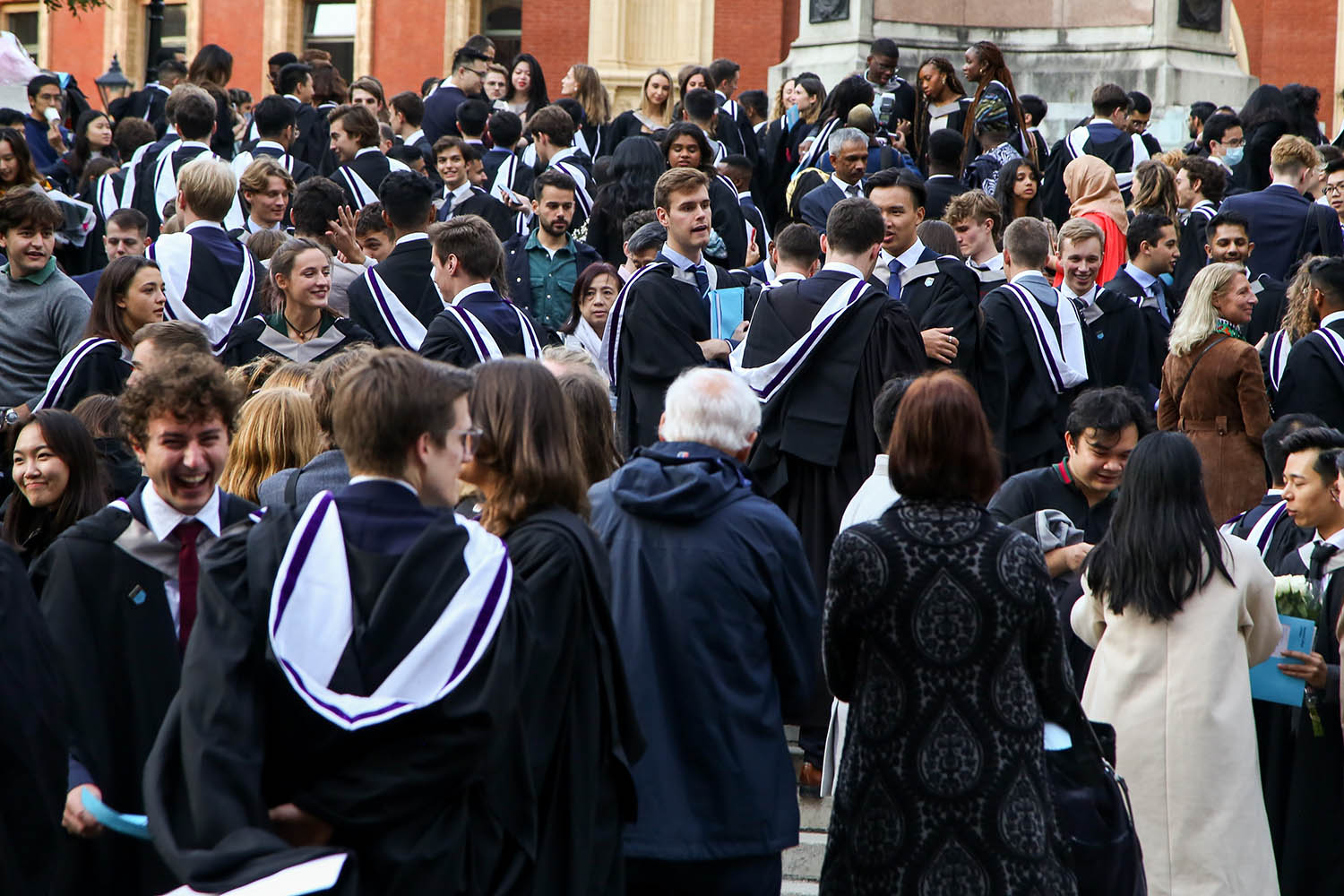Graduating is – almost universally – a humbling experience. But it’s been particularly so for the class of 2025. Entry-level job vacancies in the UK have slumped to their lowest since 2018, according to recruitment platform Adzuna, prompting “record competition”.
Last year in the UK there were an average of 140 applications per graduate job. In the US, big tech’s grad-hiring has dropped by a quarter since 2023.
Some graduates blame artificial intelligence (AI). They talk of declining vacancies at the “big four” accountancy firms, where entry-level roles are down 11-29% this year. Reddit threads swarm with graduates voicing concerns.
The fear is that AI is now capable of repetitive tasks such as data cleaning, draft writing, and admin – long seen as professional rites of passage. Some HR managers admit they prefer using AI to graduates for so-called grunt work.
Gen Z is taking note: 1 in 10 British students have switched degrees to pre-empt AI, according to a Prospects survey of 4,000 respondents. Meanwhile, universities are racing to introduce AI literacy courses and rethink how to teach skills that AI can’t replicate. Early careerists are being urged to get smart and AI-native, and self-proclaimed luddites are calling for policymakers to intervene.
The broader labour market has seen a downturn, too, but the drop in entry-level openings is particularly stark. US data shows that joblessness among recent young graduates – reaching 5.8% in March – has crept above the national rate. That is unusual in itself, and now at its most extreme in more than three decades. Europe looks set to follow.
Yet economists such as Carl-Benedikt Frey at the Oxford Martin School aren’t convinced that AI is the prime culprit. He points instead to inflation, interest rates, wage pressures and lingering post-pandemic uncertainty. In reality, there’s no “definitive evidence that AI is the reason for the shaky entry-level job market”, as one LinkedIn exec recently conceded. At least not yet.
It’s not unusual for young people to bear the brunt of economic slowdowns and hiring slumps. Graduate unemployment also spiked during Covid and post-2008.
Cuts at major consultancies are often linked to economic downturns. Fluctuations in intake sizes are normal, with hiring based on demand. A UK bank executive added that over-hiring during Covid is also at play. Privately, several firms admit they simply can’t afford big intakes at the moment.
Graduate Oliver Partridge goes further, arguing the real problem is a broken education system causing oversupply.
“Everyone and their mum has a higher qualification now,” says Partridge, 22, who recently completed a journalism master’s. “Employers want tangible experience over any type of qualification.”
Partridge notes that graduates are “sold a dream” that university will lead to a job, but in fact “getting a degree just qualifies you for the race”. He added: “At my uni, it was difficult to find anyone who thought about life afterwards. I was one of them.”
Indeed, 30% of Brits now have a degree, up from 19% in the 1990s. More graduates mean fiercer competition for a limited pool of roles.
In short, AI is part of a confluence of headwinds that’s been swirling for years.
Still, experts concede that white-collar roles, such as analysts, and industries like IT, will be irrevocably changed by AI. CEOs at large tech firms also acknowledge that efficiency gains will reduce their workforce, and plan to invest more than $300bn into AI this year.
In the longer term, though, this could offer an opportunity for young workers. A study from the MIT Sloan School of Management of call-centre agents found that workers “with less experience” see the biggest productivity gains from AI. In theory, that means graduates could be given more interesting, challenging work off the bat while AI takes on more mundane tasks. For employers, it offers a turbocharged 22-year-old.
AI could then redefine what first jobs look like – at least for the lucky graduates who can land one.
Photograph by Dinendra Haria, SOPA Images via Getty
